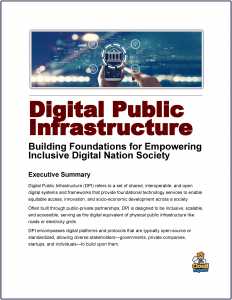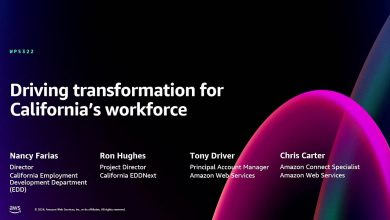Tonga’s Implementation of Digital Public Infrastructure
Led by the government’s Digital Transformation Department this initiative introduces a robust DPI framework to enhance public service delivery and citizen experience.
 Tonga’s implementation of Digital Public Infrastructure (DPI), as detailed in this case study from VS ONE WORLD, represents a significant step in the Pacific Island nation’s digital transformation journey.
Tonga’s implementation of Digital Public Infrastructure (DPI), as detailed in this case study from VS ONE WORLD, represents a significant step in the Pacific Island nation’s digital transformation journey.
Led by the government’s Digital Transformation Department under the Prime Minister’s Office, in collaboration with the Ministries of Justice and Health and supported by the World Bank, this initiative introduces a robust DPI framework to enhance public service delivery and citizen experience.
The project, executed by VS ONE WORLD, a subsidiary of VSIS Group, integrates a digital identification system, civil registration platform, and data exchange infrastructure, positioning Tonga as a model for small island nations.
TongaPass
The cornerstone of Tonga’s DPI is the TongaPass digital identification system, a secure, interoperable platform built on the Modular Open-Source Identity Platform (MOSIP).
TongaPass provides citizens with a digital ID, enabling seamless access to government services such as healthcare, social benefits, and e-governance applications.
By leveraging MOSIP, a cost-effective and scalable solution developed in India, Tonga addresses the challenge of establishing a national ID system in a resource-constrained environment. This digital ID system streamlines identity management, ensuring that citizens can authenticate themselves efficiently across various services, reducing bureaucratic delays and improving access for Tonga’s population of approximately 100,000.
openCRVS
Integrated with TongaPass is the openCRVS civil registration system, which modernizes the management of vital statistics such as births, deaths, and marriages. This platform ensures accurate and centralized record-keeping, replacing outdated manual processes.
By digitizing civil registration, Tonga enhances the efficiency of public administration and supports data-driven policymaking. The openCRVS system is designed to be interoperable with other DPI components, enabling real-time data sharing between government agencies, which is critical for delivering cohesive services in a geographically dispersed nation like Tonga, with its 170 islands.
API Integration Platform
The third key component is a sophisticated API integration platform, which serves as the backbone for data exchange across government institutions. This platform enables seamless interoperability between systems like TongaPass, openCRVS, and other e-government services, ensuring that data flows securely and efficiently.
For example, a citizen’s digital ID can be used to access health records or apply for social benefits without redundant paperwork. This integration reduces administrative silos, enhances service delivery, and fosters trust by prioritizing data security and privacy, aligning with global DPI standards like those outlined by the United Nations Development Programme.
Tonga Digital Government Support Project
The initiative, launched under the Tonga Digital Government Support Project, was supported by the World Bank and implemented by VS ONE WORLD as the primary DPI solutions provider and systems integrator. The project reflects a collaborative approach, involving multiple stakeholders to ensure alignment with Tonga’s Digital Government Strategic Framework.
According to Priyanga Gunasekera, Group MD of VSIS Group, the project’s success highlights their expertise in delivering complex, national-level technology initiatives on time, delivering tangible benefits to Tonga’s citizens.
Andrew Tominoana, Director of the Digital Transformation Department, emphasized that the DPI framework marks a transformative step in modernizing identity management and civil registration, creating a foundation for long-term digital governance.
Citizen-centric Service Delivery
The impact of Tonga’s DPI is multifaceted. It enhances citizen-centric service delivery by making government services more accessible, particularly for remote communities across Tonga’s islands. For instance, digital IDs and integrated systems reduce the need for physical travel to access services, a significant barrier in a nation with limited connectivity.
The DPI also supports economic and social development by enabling efficient delivery of healthcare, social welfare, and other public services. The case study notes that the interoperable framework streamlines processes, potentially attracting further investment in Tonga’s digital economy.
Additionally, the initiative aligns with the Pacific Digital Democracy Project, which promotes inclusive digital transformation, ensuring that no one is left behind, as highlighted by the United Nations Development Programme.
Looking Forward
Challenges remain, including Tonga’s limited internet penetration (92% in 2022, per World Bank data, but with rural gaps) and the need for digital literacy programs to maximize DPI adoption. Cybersecurity is another concern, addressed through robust measures like those embedded in MOSIP and the API platform, though ongoing vigilance is required.
The case study underscores Tonga’s commitment to overcoming these hurdles through partnerships with global organizations and initiatives like the USAID Digital Connectivity and Cybersecurity Partnership, which supports digital skills and infrastructure development.
In conclusion, Tonga’s DPI implementation, as detailed in the VS ONE WORLD case study, establishes a scalable, inclusive digital ecosystem through TongaPass, openCRVS, and an API integration platform.
By leveraging open-source technologies and global partnerships, Tonga is transforming public service delivery, enhancing governance, and setting a precedent for small island nations. This initiative not only addresses local needs but also aligns with global DPI principles, fostering a sustainable digital future.




